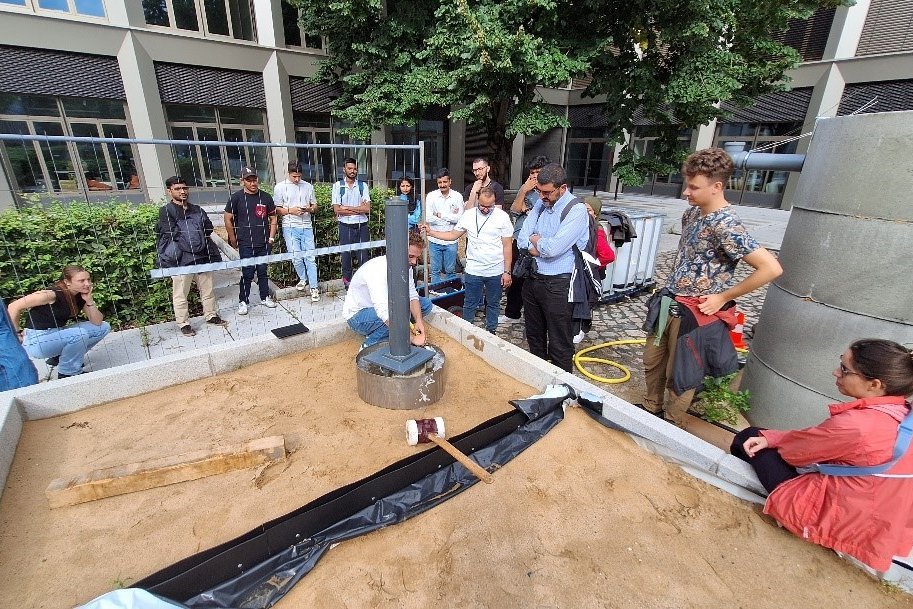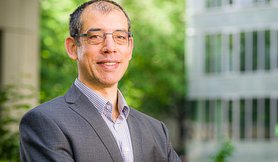
International summer school at the HTWD strengthens the development of specialists for sustainable groundwater recharge
18 postgraduates and university lecturers from nine countries came to the MARISS Summer School in Dresden at the beginning of September. The aim of the event was to transfer knowledge on groundwater recharge methods. A specialised field that is gaining in importance worldwide, while there is a shortage of qualified specialists.
Targeted groundwater recharge (GWA), internationally known as managed aquifer recharge (MAR), is a key component of sustainable water management. It enables the controlled recharging of aquifers and improves water quality at the same time. As a nature-based solution, it is gaining relevance worldwide, particularly in regions that are severely affected by climate change.
Global importance of groundwater recharge is growing
An editorial in the international specialist journal Groundwater emphasises that hydrogeology will remain a key field in the future, but that not enough postgraduates are being trained to meet the growing demand (link: https: //ngwa.onlinelibrary.wiley.com/doi/10.1111/gwat.13439). This is precisely where the international MARISS summer school comes in: It strengthens competences in GWA and bank filtration and builds up the next generation of specialists.
International specialist training at the HTW Dresden
From 1 to 6 September 2025, 18 experts and researchers from nine countries took part in the 6th MARISS Summer School. It was organised as part of the "MENAWAT" project, which is funded by the Federal Foreign Office via the DAAD-Ta'ziz programme and focuses on the water-scarce MENA region (countries in the Middle East and North Africa).
In particular, the partner universities German Jordanian University (Madaba, Jordan) and Abdelmalek Essaâdi University (Tangier, Morocco) were involved. Participants also came from Tunisia, Lebanon, India, Japan, the Netherlands, Poland and Germany. Specialist contributions were also made by the Fernwasserversorgung Elbaue-Ostharz (FEO) and the INOWAS junior research group at TU Dresden.
In her opening speech, Professor Kathrin Harre, Vice-Rector for Research, Sustainability and Transfer at HTWD, emphasised the importance of knowledge transfer: "MARISS is an example of how research results from applied projects on groundwater recharge can be transferred to education and training."
Practice-oriented programme and international case studies
The programme offered lectures and practical exercises on site assessment, water quality, monitoring, modelling with the INOWAS platform and the management of GWA systems. A highlight of the programme was the excursion to FEO's Torgau-Ost riverbank filtration site.
In addition, researchers from the Indian Institute of Technology Roorkee expanded the summer school with contributions on the integration of GWA in the field of water nexus in India, which they developed as part of the DAAD programme GIANT and the SPARC programme of the Indian Ministry of Education.
Since 2020, MARISS has been organised almost annually by the Department of Water Management at HTW Dresden together with TU Dresden and regional water suppliers. Research foci include GWA, bank filtration, well construction, water treatment and rainwater management.
Contact


